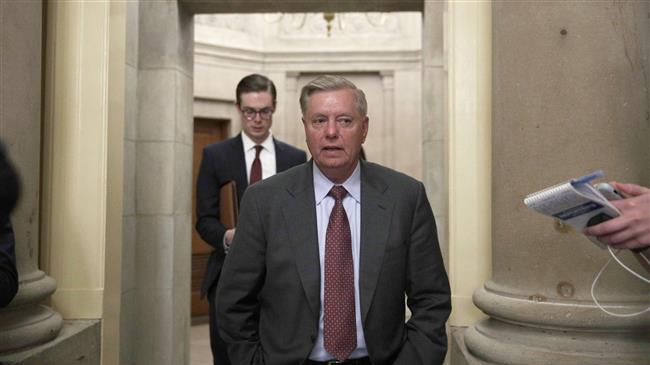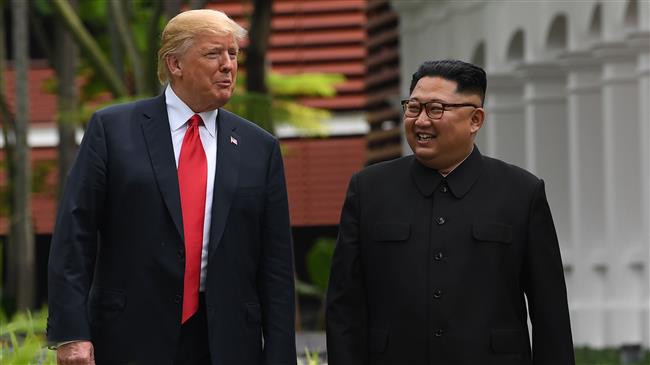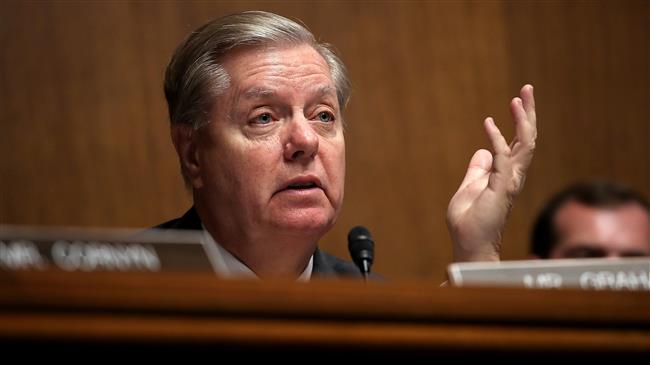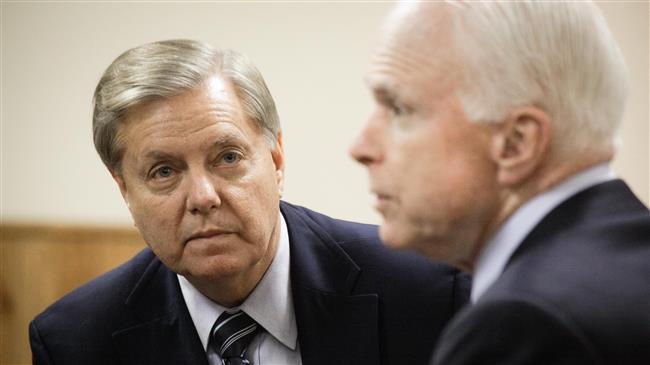Senator Graham is a shill for the US military-industrial complex: Scholar
Republican Senator Lindsey Graham is a shill for the military-industrial complex, which is “a mainstay of the US economy, eating up one-third of the US federal budget's discretionary spending,” according to Dennis Etler, an American political analyst who has a decades-long interest in international affairs.
In an interview with CBS’ “Face the Nation" on Sunday, the senator from South Carolina said the US troop level should not go below 8,600, arguing that a large-scale withdrawal from the war-torn country could pose a grave threat to US national security.
Asked by CBS host Margaret Brennan how many US troops should remain in Afghanistan, Graham said: “The number is gonna be around 8,600. To go below that I think would be really risky.” The US currently has about 13,000 troops in Afghanistan.
Graham claimed that the US troops in Afghanistan are an "insurance policy against another 9/11," alleging that the September 11, 2001 terror attacks took place because the US was not focused on Afghanistan.
On Thursday, President Donald Trump said the United States will keep about 8,600 troops in Afghanistan even if Washington reaches an agreement with the Taliban.
“We’re going down to 8,600 [troops] and then we make a determination from there,” he said in an interview with Fox News radio. “We’re always going to have a presence.”
Commenting to Press TV on Thursday Professor Etler said, “Like the Roman legions of yore, the US Empire requires a continued presence of professional troops and local auxiliaries to maintain control of its frontier regions to keep the barbarians at bay.”
“No matter how one views 9/11, whether it was a government conspiracy or not, it played into the hands of the neoconservatives who seized control of the US foreign policy establishment with the election of George W. Bush,” he stated.
“The neo-con domination of US foreign policy, however, led to debacles in Afghanistan, Iraq, Libya and wherever else it's been implemented, resulting in a sea change in public perceptions and calls for the withdrawal of the US from the countries in which it had intervened or invaded,” he said.
“Caught with its pants down and exposed for all to see, a number of US politicians jumped on the band-wagon demanding the end to US interventionism and the return of US troops to the homeland. This populist stand, however, was a sleight of hand and once elected the permanent military and bureaucratic state (aka the deep state) that underpins the state apparatus of US imperialism, asserted its influence and derailed any attempts by elected officials to dismantle the US presence abroad,” he noted.
“The maintenance of the US empire is instrumental in the continuation of the capitalist system. The infamous military-industrial complex is a mainstay of the US economy, eating up one-third of the US federal budget's discretionary spending. The corporate interests behind the military-industrial complex have their tentacles spread throughout the US government with a revolving door between the corporate boardroom and government agencies and departments that control the flow of tax-payer funds into their coffers. In order to maintain this cash cow, a rationale must be established to convince the public of the need to stay the course,” the analyst pointed out.
“That's where the likes of Sen. Lindsay Graham comes into play. As a shill for the military-industrial complex, he will oppose any attempts to withdraw from Afghanistan or anywhere else the US has a military presence. This serves as a useful cover for those politicians who demagogically call for a withdrawal of troops from overseas. They can always claim that they have been stymied by more conservative forces. And the Empire continues to roll on,” he concluded.
VIDEO | Struggles of Palestinian women amidst war, displacement
VIDEO | Hezbollah rains attack drones down on elite Israeli brigade
VIDEO | US biased mediation fails
Leader: All captains of criminal, Zionist, terrorist gang must be prosecuted
Iran further raises its oil prices for Chinese buyers: Report
Iran to launch major pressure-boosting projects in South Pars
VIDEO | Escalation amid ceasefire talks
EU's Borrell says ICC arrest warrants for Israeli leaders binding















 This makes it easy to access the Press TV website
This makes it easy to access the Press TV website